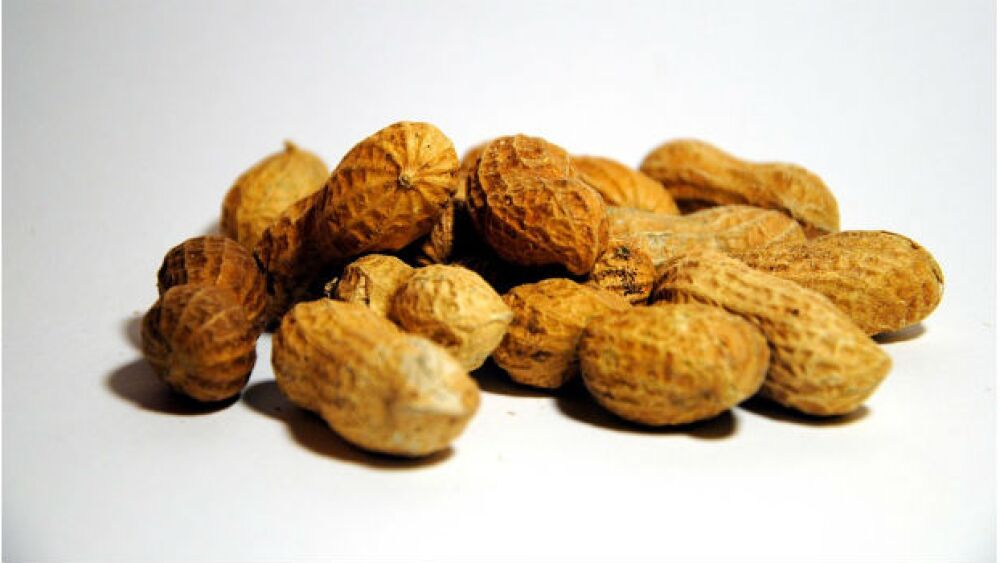Aimmune Therapeutics announced late-stage trial results that showed its peanut allergy therapy was effective in more than 67 percent of juvenile patients.
Shares of Aimmune Therapeutics have jumped more than 15 percent after the Bay Area company announced late-stage trial results that showed its peanut allergy therapy was effective in more than 67 percent of juvenile patients.
The announcement puts the company on track to score the first regulatory approval for a preventative treatment of an allergy that is potentially fatal. The trial included juveniles who are highly allergic to peanuts. Peanut allergies can be fatal, typically through anaphylactic shock. Aimmune said 67.2 percent of juveniles ages four to 17 who were administered AR101 in the Palisade trial could tolerate exposure of at least a 600-mg dose of peanut protein in the exit food challenge. Only 4 percent of patients on the placebo could tolerate that amount, the company said. At a 1000-mg dose of peanut protein slightly more than half, 50.3 percent, of those juvenile patients were able to tolerate exposure. In comparison only 2.4 percent of placebo patients could tolerate that dose level, Aimmune said.
At a smaller dose level of peanut protein, the vast majority of juvenile patients could tolerate exposure. At a 300-mg dose, 96.3 percent of patients on the AR-101 arm could tolerate exposure to peanuts in the exit food challenge.
Additionally, the company said the confidence interval level was an astonishing 53 percent, much higher than the pre-specified threshold of 15 percent.
Brisbane, Calif.-based Aimmune’s AR101 is an oral biologic desensitization therapy for peanut allergy. The medication comes in a capsule and is sprinkled over the food before eating. Aimmune is developing immunotherapy treatments for food allergies using its CODIT system -- Characterized Oral Desensitization ImmunoTherapy. In June 2015 Aimmune won Breakthrough Therapy Designation status from the U.S. Food and Drug Administration for AR101. In addition to the BTD AR101 also has Fast Track Designation from the FDA, which could cut down the amount of time the therapy becomes available to the public should it pass approval.
Based on the Phase III results Aimmune said it will submit a Biologics License Application to the FDA by the end of 2018. Following the filing with the FDA, the company intends to seek marketing authorization from the European Medicines Agency in the first half of 2019.
Aimmune Chief Executive Officer Stephen Dilly said the company was “enormously pleased” with the Phase III results. He called it a win for those who suffer from food allergies.
Daniel C. Adelman, chief medical officer of Aimmune, said Palisade, with 499 juvenile patients, is both the largest peanut allergy trial ever conducted and is the first to use an independent blinded assessor. Palisade is also the first trial to accept peanut-allergic patients with a history of severe or life-threatening reactions, Adelman added.
“Moreover, the Palisade population was highly peanut-sensitive and highly atopic, with almost three-quarters of the patients having experienced anaphylaxis prior to enrolling in the study. Given how robust the Palisade results are and that they met or exceeded the pre-specified metrics, we’re very encouraged that the data from Palisade are helping to define the magnitude of the potential treatment effect in very sensitive peanut-allergic patients,” Adelman said in a statement.
In the trial a total of 10 participants experienced serious adverse events, none of which were life-threatening, Aimmune said.





